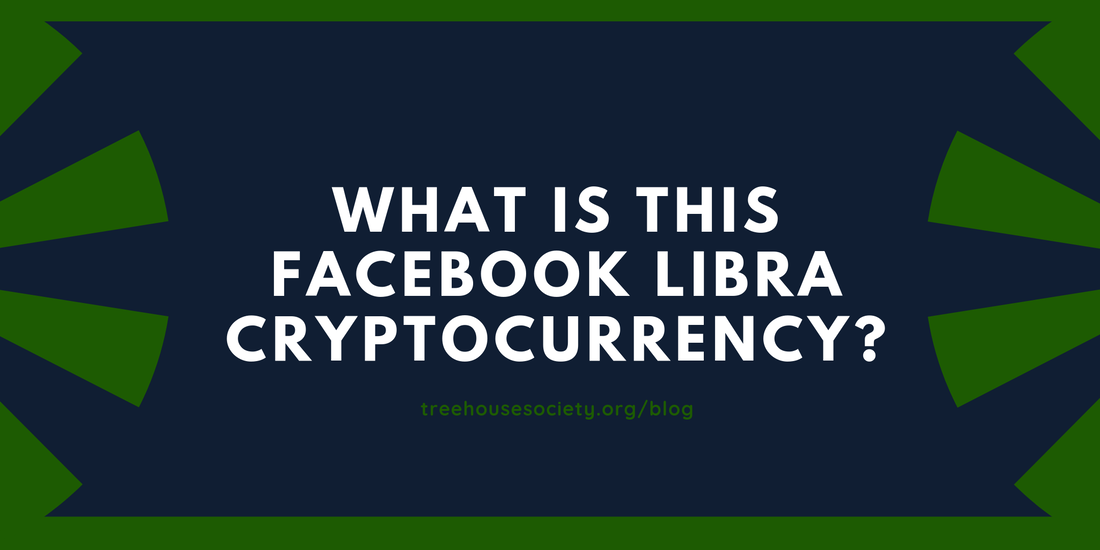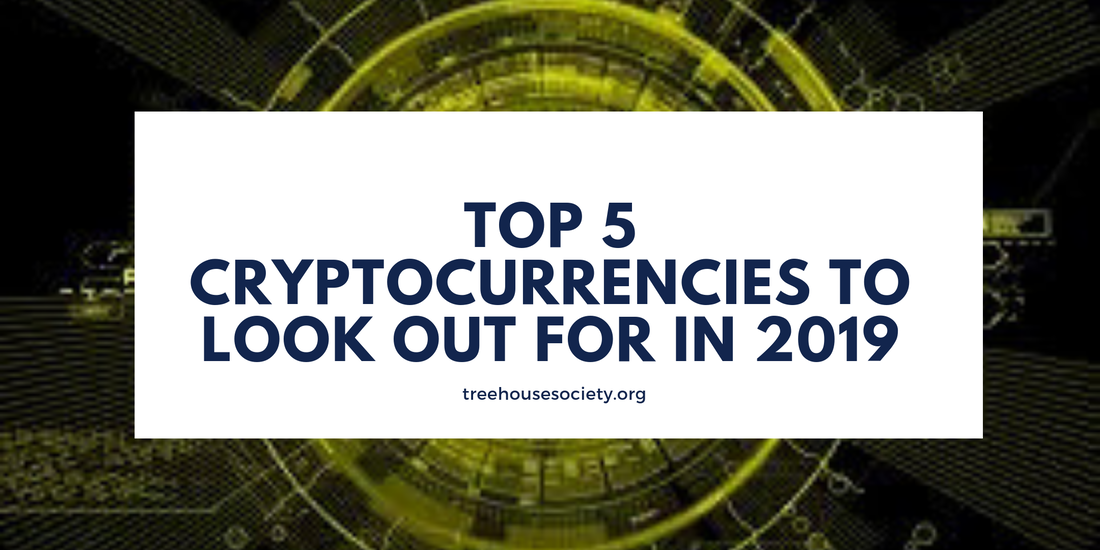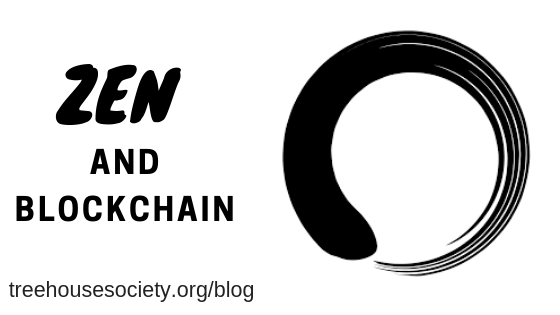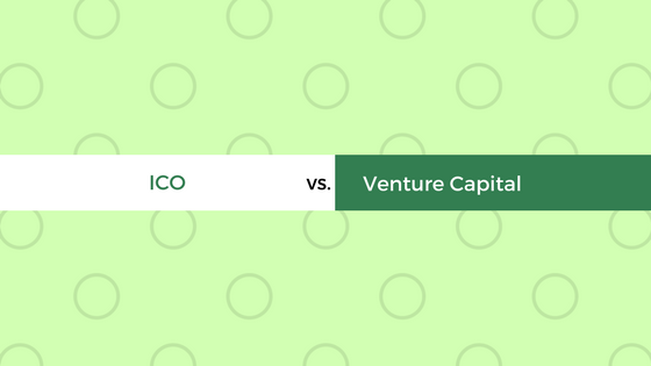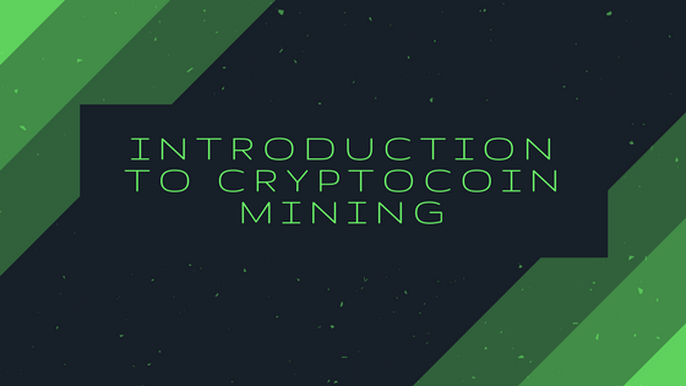|
What is this Facebook Libra Cryptocurrency?
Everyone has heard of cryptocurrency, right? If you are a fan of digital currency too than your newsfeed must be flooded with the latest news too. Yes, by the latest I mean the Facebook Libra Cryptocurrency! Finally, Facebook has also revealed all the details of the cryptocurrency they’ve recently launched, Libra. With Libra Cryptocurrency you can buy and send stuff to people with almost zero fees. But in the case of Libra, Facebook isn’t entirely controlling it. It’ll just get a single vote in its ascendancies like the several other members of the association including Andreessen Horowitz, Visa, and Uber. All these associations are meant to promote the Libra Blockchain making it dominant and popular. How does Facebook Libra Cryptocurrency work? We’ve learned some basics about Libra, right? You can simply cash in the state’s currency, purchase Libra and spend it like dollars without worrying about the fees. But it is a lot more than that. The fundamental and artificial intelligence technology, the association leading and governing it, the wallets which you’ll prefer to choose and the procedure through which the payments will work – everything has an elaborative aspect to them. Facebook has published 100+ pages of documentation regarding Libra and Calibra. Here are some interesting details we’ve extracted from the detailed documentation which might be a little hard for you to read. Let’s dive in. The Libra Association: Before launching the Libra Cryptocurrency, Facebook was aware that everyone wouldn’t trust the new digital currency, therefore, it started recruiting the different founding members of the association – the Libra Association. The founding members paid $10 million equally to join and also became a validator node operator optional which means they gained one vote in the association and become eligible for a share which is proportionate to the invested amount. Other than this, Facebook is also debuting a secondary company which is referred to as Calibra which can protect the user’s privacy by staying away from the payments made through Libra. Moreover, it is also designed to handle crypto dealings. The real ID of the users is always hidden from the transactions made publicly. The interesting fact is that the other founding members along with Facebook can earn the profit on the money which is cashed by the users. This is primarily done to keep a stable value. Facebook’s impudent offer to develop a universal digital currency that endorses fiscal enclosure for the unbanked essentially has more confidentiality and decentralization in-built than many anticipated. Rather than attempting to manage Libra’s future or crush tons of money out of it directly, Facebook has chosen to play the long-game by dragging costs into the online domain. Cryptocurrencies have made it easier to transfer cash straight to someone and also helps quite a lot in business. Nonetheless not confidential, cryptocurrencies are often referred to as pseudonymous. Certain cryptocurrencies, particularly bitcoin, consists of a cap on its number which can be issued, this means that the owners of already existing coins wouldn’t have to stress about the capricious development of new coins like Libra.
0 Comments
Cryptocurrency or altcoin can be defined as digital money which is usually present as tokens and coins. Bitcoin is the original coin, but as the market grew, there are now alternative platforms with competitive features.
Unlike what everyone is saying, cryptocurrency isn't dead yet! The top 5 cryptocurrencies that you need to look out for in 2019 are: Ethereum Of course Ethereum! Ethereum will always be in fashion no matter the year! This company was launched back in 2015 and allows Smart Contracts along with Distributed Apps to be built. The applications can later work without facing downtime and third-party interference safely. Ethereum uses token called ether which is used as a vehicle for the mobility on the platform. Ethereum is used by people who want to develop applications as well as investors who can purchase digital currencies. At the moment, Ethreum is known to have a market capitalization of up to $12.49 billion where each token’s value amounts to $118.71. Dash Another famous and competitive platform cryptocurrency is DASH. It was originally called the "darkcoin" due to the presence of secretive bitcoin. DASH is popular because it works with a decentralized master code network which makes it impossible to trace any transactions. Therefore, it also enhances the anonymity of the users. The founder of DASH is Evan Duffield who started it in 2014 allowing users to mine currency through GPU and CPU. It includes features like the InstantX and DarkSend which are commonly sought by many people. This year’s analysis shows that DASH has a total market capitalization of $606.76 million and each token has the value of up to $72.32. Litecoin One cryptocurrency is the Litecoin that was started back in 2011 by Charlie Lee and hailed as one of the initial cryptocurrencies. It is also known as ‘silver to Bitcoin’s gold’ due to the neck to neck competition of two. This is a digital currency that is based on the open-source global payment network. There is no central authority to control the network and the CPUs can easily decode ‘scypt’. Due to the faster process, it is called a tough competition for Bitcoin too. The Litecoin’s market capitalization is up to $2.63 billion and the token price is $43.41. Ripple The fourth company in line to look out for is Ripple that was launched in 2012 allowing international transactions to be made at a lower cost and quicker pace. One reason that Ripple is taking over is the lack of a mining system which decreases the network latency. Ripple is distributing XRP through business deals mostly. It has the market capitalization of $12.69 million and token’s value stands at $0.308. Zcash And lastly, Zcash is another hit cryptocurrency of 2019 which has HTTPS for coins. With this platform, you get selective transparency when you are making transactions. Moreover, even when other details are published, the names of senders and recipients along with the amount remain a secret. Zcash stands on top with its market capital of $291.25 million and the token value of $49.84 each. Many people are already investing in cryptocurrency through the development of applications or business investment using these cryptocurrencies! Streetwear is loosely defined as common clothing items for casual wear that gain significance in the lifestyle of a people. Usually, one can trace the roots of streetwear culture to California in the 80s when skating was quite in fashion. Later on, it was adopted as hip-hop culture taking over everywhere including Japan. However, in the past few years and especially in 2018, streetwear became more commonly appreciated and prominent with Yeezy, Supreme, Nike, and Adidas.
The millennial and Gen-Z are now the growing consumers of the fashion and they seek products that offer a sense of community along with trend. It can be speculated that streetwear culture is about an attitude towards trends and fashions, therefore, becoming a lifestyle rather than a reduced fashion statement. How is Streetwear Becoming Common? Social media and technology are not the same as it used to be. Once a trend is adopted by famous people, it is then hyped by fans and social media influencers. On Instagram, it is easier to see the trend of social media influencers and celebrities to promote a common style or trend which later trickles down to the common man before the next new thing is introduced. Most of the people who hype up the culture are young people who share their taste for certain things. For instance, a shared love for ‘indie’ music and ‘alternative’ bands gave rise to people who dressed similarly. Similarly, the streetwear culture is something of a representation of the people, their taste in arts, music, and fashion. In other words, this type of trend encompasses a broader population and allows everyone to participate. It is only natural that more people would dress up trendy when the trend is easily accessible and in fact, introduced by the people rather than high-end fashion brands or magazines. Which Brands Fall Under Streetwear Culture? Although people can wear fake or alternative things, the brands still take up much of the space in the streetwear. Brands such as Nike, Adidas, Supreme, Off-White, and Obey. Most of these brands are equally reciprocated by men and women equally. However, there are others like Stussy, A-Cold-Wall*, Kith and Heron Preston which have refined collections for women who want to wear streetwear. These brands make the desired large-sized hoodies and t-shirts and huge sneakers. The trend usually includes graphic logos and animations which especially cater to the youth on Instagram. There is an interconnected nature of fashion consumption fueled by social media and street culture. The Market for Streetwear Culture While big names like Supreme or Adidas and many others remain a preference among consumers, they are not limited in their choices. Many people are now starting their own business or startup to cater to the streetwear culture which would be more affordable for people with different income levels. There is a wide market for anyone who has unique ideas to present authentic and fashionable streetwear to the people who are inspired by hip-hop culture in 2019. In fact, you can even resell the items and they sell out within hours. Platforms like Spotify, iTunes, SoundCloud, and other music streaming services allow music artists and listeners to connect. We can now listen to music any time we want to with the help of technology. However, integration of blockchain and artificial intelligence now defines much of the music industry whether we are ready to face it or not. One phenomenon that has become common along with the streaming platforms is that of artists signing up if they want to monetize their music. As a result, the money that artists receive is either controlled by the labels or the streaming platforms, often taking longer to reach the artists’ accounts.
Benefits of Blockchain in Music Industry Mainly, blockchain is initiating a token-based economy which allows the artists to control their intellectual property by turning it into a financial asset. The token which belongs to the artist will show the accurate value of the work and therefore, anyone that purchases the work will own a share. As more people listen to music, the revenue will be earned by the artist as well as the shareholder. Furthermore, this enhances the music business as the artists will be able to earn the money upfront. They will not have to seek music labels for the monetization from a music label. This means that the artists can stream their music on Spotify or SoundCloud etc. as well as control the royalties they earn. The third prospect we can aspect to change with blockchain is that of licenses and agreements between music publishers. The blockchain has the potential to make space for a system that can maintain the database of music copyrights. Moreover, anyone interested to access the information to learn about the copyright owner can look into the details easily. The music industry at the moment has a complicated system of recording agreements that control the artist’s royalties due to the lack of clarity in ownership. Future of Blockchain in the Music Industry It can be anticipated that the music industry will someday fully embrace blockchain and radically change the industry. At the moment, it seems far-fetched for blockchain to completely takeover. However, it takes a startup to turn into a million-dollar enterprise and we can already see examples like VOISE, Ujo and many others. Another startup worth mentioning is the Viberate which started back in 2015 and has been growing ever since. It already has many famous artists that are recognized on the platform including Imogen Heap, Robbie Williams, The Chainsmokers, and several others. The Viberate team is leading blockchain in the music industry by the example of providing music solutions. However, this change is not only beneficial to the artists or shareholders because according to A-Rayz, “Tokenization allows fans to be active participants in an artist’s creative work and share in the success of a project.” This statement implies that the listeners will readily have to adapt their preferences for musical platforms and switch along with their favorite music artists if they wish to hear their music and promote their work. by Alan Waxman MLA Black Box Cryptography: Of Zen Noble Truths and Blockchain You are a black box (空). More appropriately, you and I together, in this shared space, are (in) a black box right now. Big data (縁) flows through, informing our context and ourselves. In this sense(念), we form a cipher (円相) between us, a cryptographic (法) void (無) of potentiality (如来). Sharing Economy We can share(業) certain things, our clothes, our food, even our “time”(時). These things are possible to share because we can shed them, alienable. When we’d rather not actually bother to take off our clothes or meet to share food, we can make images of our clothes, food, and time, and share this simulacrum(空想). You and I can decide(思) to quantify the value of this exchange, of this present. We can slap price stickers on our clothes and our time, or even more easily price our simulacre versions(行) of our “things”(事). Monetize. Better to put a price on an image(像) of yourself than on yourself(我), right(正)? The image, the on-screen(写) persona of yourself, is not only easier to market, to become a personal brand, but it also keeps you safe. Why not toss around digital messages, images, selfies in and out, slick and protected? Pretty soon we’ve got all these mega chat rooms running around the world, multiple online businesses and characters going(行). And the digital flows into the digital. Heck, if we add up(欲) all the dollar signs into a ledger we have a running tally of our digital community value - line graphs on a screen tracing a speculative online digital market. Now, we know Satoshi’s folks bodied(此縁性) the flow(流), by putting something more to “crypto” - the garden in the machine(露地). Cryptography This “something”(埃) makes the code a bit more solid, a bit more embodied(現). Ever extending lines that make up the blockchain are verified by shared processes (公案) - the data mining cipher(円相). Suddenly, the digital is looking a little more locked down and unknown(不思). The internet of things lends itself to this because the physical world and it’s panoply of expressions of context over time (縁起) constantly creates new, unforeseen data flow(泡). When something in the system breaks(侘) it comes to suddenly triangulate even more value in the constantly updating(化) blockchain. Example (礼) is derived by exception (陰陽). Whether math problems, or personal health decisions, it’s the unknown variables that derive the greatest value in the cryptography. The risk. On the blockchain there is no going backwards. You and I and our data mining internet of things(縁起), a distributed ledger updating in real time. The blockchain is “digital”(裏) but it mirrors the change in the physical community of value, repudiated in the mining processes, a black box of momentous proportions(空). This feedback continues quickly ad-infinitum(無常), blurring into real time(心相續). Pretty soon, the intricacies and patterns of unknowns; the breaks in the norm(不正常), come to inform the code(法). Deep learning(深層学習) in the neural net(神経回路網). Artificial intelligence to Intelligence Perhaps you’ve been preoccupied(苦) with smoothing out the anomalies(不正常), with creating seamless feedback loops(廻) where you know what goes in to create what comes out. Control(配). Make a brand(名). A reliable product. This is the old artificial intelligence approach: make a machine learning model that fixes things and maintains “good” feedback, no big waves. This is the old closed-system approach. Minimize the variables. Make a nice selfie. Get likes. Monetize that shit. Now imagine a particular cluster of these intricacies, risks, anomalies. Imagine this as a literal black box. From the view outside the box, we see what’s going in and what’s coming out - We see a steady stream of data representative of what’s inside the box(空想). We can paint the box with any image, any simulation we choose to see, and this may affect the inputs and outputs of the box. We can even paint a human face on the box, perhaps even a selfie of ourselves. But, we will never know what’s inside our box(無心相續). When we realize we are this black box (無心) - we realize that we are the machine and the machine is us, a man/mirror mix. Suddenly Moore’s Law has not slowed after all, just reached an asymptote. Computers shrank from the size of a town, to a building, to a room, to a desk top, to a pocket, and then suddenly vanished entirely. We ARE them, the other, I and thou, in ecstasy. No more man vs nature, with “resources” and “manufacturing.” Enter the anthropocene, the primordial(阿吽), the tea ceremony(茶の湯). This leap into the unknown stands to release us from the bounded thinking of controlling variables. It stands to transform the act of “programming” into a sensitive opening of intersubjective vulnerability (慈悲). It stands to unleash us from laboring in the dry factories of closed systems to play in the wet lush fields of open system ecologies. Alan Waxman MLA (awecosocial.com) creates ecosocial design for health equity and cultural resiliency. By operating in locations of fragility in space and time, he aims to bring people together to reopen critical narratives. His Urban Rhythms studios with Mark Morris Dance Group, the Center For Court Innovation, and other partners, have assessed urban patterns by way of participatory engagement; setting up emic spectrums of data derived from meaning for cultural insiders. Resident participants, those who have the most to gain and the most to lose, collaborate to make real time interventions through events, dance, and environmental change. As "Neighborhood Doctor," Waxman has deployed ecosocial design in Brownsville, Brooklyn NY and Kyoto, Japan, where he served as an instructor with the University of Oregon in their Myoshinji Zen temple based urban design program. He works as a landscape designer at Elizabeth Everdell in San Francisco.
ICO stands for Initial Coin Offering. It is often used by startups to go around the heavily regulated process of raising capital as required by banks or venture capitalists. That is to say that ICO is an unregulated method of raising funds for new cryptocurrency ventures. It works like this: a new start-up is about to raise money using an ICO, it creates a plan of what their project is about, what the project will achieve when it has been completed, how much would be required to finance it, and how much of the realizations would be reserved for the pioneers, the acceptable type of money and the duration of the campaign.
When the campaign begins, supporters of the project buy the startup’s cryptocoins using their coin wallet. If the money raised at the end of the campaign doesn’t meet the company’s target, it is returned to the owners and the ICO is deemed to have failed. However, if the amount is achieved and the project becomes successful, the cryptocoins would increase in value. Venture capital on the other hand, is funding provided by investors for new businesses; businesses that are believed to have high profit potential. Venture capital is not always in monetary form; sometimes it can be technical or managerial expertise and is usually offered by financial institutions, investment banks or wealthy investors in return for equity in the business. Pros of Initial Coin Offerings DecentralizationBeing open to the general public, anyone in the cryptocurrency can partake in an ICO so long as they can get their funds transferred in time. The idea of cryptocurrency is to make the opportunity of investment as decentralized as possible. Crowd BackingA startup funded by ICO has the advantage of a support system that is more or less a fan base. This increases word of mouth advertising for the company and decreases the need for standard marketing and user acquisition. Increase in Social EnterpriseAs we know, venture capitalists more often than not invest only in projects that have a high potential for return from their investment. The coming of ICOs will mean funding for many more projects which don’t have the kind of profit motives required by venture capitalists. Investment OpportunityMost people who have invested in ICOs such as bitcoin and ether do not want to pay capital gains taxes and so are unmotivated to bring their profits offline. ICO offers a solution for those profits. Ether and Bitcoin can be converted into a new cryptocoin which adds to their scarcity and increases their value. Cons DeregulationICOs are not regulated. It is possible for fake startups to come into the market and defraud supporters. Users may not be reimbursed if things go wrong. However, smart contracts are now used to lock up ICO funds. TimingWith the speed at which ICOs sell out, many people may not get to partake in the campaign for the mere fact that they can’t get their funds transferred in time Pros of Venture Capital Expertise Besides monetary funding, venture capitalists can provide business guidance and consultation for startups. Networking It is easy to make valuable connections because venture capitalists are usually well connected in the business industry. Security As a business owner, getting venture capital funding secures your own finances. If the business fails, the owner is not required to pay back the venture capitalists who invested. Cons Loss of Control The possibility of the owners of startups losing control of their ventures is quite glaring. This is because venture capital is basically equity financing. Venture capitalists who invest in a business have stakes in that business and depending on the size of the stakes, can assume control over or influence the company’s policies. There are many ways to fund your new startup. Do your research and go with the one that is the best for your venture. Related: 5 Ways to Get Entrepreneurship Funding Since the launch of cryptocurrency (bitcoin) in 2009, several innovations have come up, further establishing the influence of cryptocurrency on global economy. However, in 2013, Mastercoin held the first ICO. And since then, several ICO campaigns have graced the world of digital currency. However, laypersons still know little to nothing about ICO. Below is a brief explanation of ICO.
What is ICO? ICO, Initial Coin Offering, also known as token crowdsale, is an unregulated means by which startup cryptocurrency companies fund their projects. Startup crypto companies launch a project while asking for the public to buy into their projects with Bitcoin or Etherum or fiat money. The buyers get the companies subsidized tokens, while the companies get the buyers cryptocurrency or fiat money to fund and develop their projects. An ICO campaign like IPO runs for a set time and with maximum tokens available for sale. Once this is reached, the campaign closes, and if the goal is achieved, then the company will commence the promised project with the crowdfunded capital. But if the target is not reach i.e. if by the time the campaign ends, the capital raised for the project is insufficient, then the company will refund all contributions. What do I Gain from ICO? Before making an investment, one must always ask the question “What’s in it for me?” Besides helping the company to fund their projects by crowfunding, ICO is profit oriented. The companies sell their tokens cheap at the start with hope of increasing in value. This potential gain is what the public gambles on. Like IPO, the company sells tokens which is more or less like stocks in IPO, however, buying tokens will not earn you a share of ownership in the company. You can do whatever you want with the tokens. Buyers can sell back their tokens to earn instant profit. For instance, when Storj, sold their tokens in May this year, their buyers were able to use the tokens to exchange for space on Storj’s cloud. After a successful project, the value of the tokens would have increased and this is also profits for the buyers. For instance, when Etherum ran an ICO campaign in 2014, tokens were sold for $0.4. After the successful launch of the project in 2015, each token had appreciated and were worth $19.42. This profit is not the type you would get with IPO What are the Risks Involved? As mentioned above, ICO is unregulated, there’s no government backing, there are no requirements before a cryptocurrency company can go public, this about sums it up that it is a gamble. Therefore, you can lose all your money and the website with will be shutdown leaving you with no one to report, if it’s a scam ICO. And even when it’s legit, profits are not guaranteed. However, cryptocurrency company owners seeing that they will lose the public’s trust and the opportunities for public crowdfunding their startups imposed a self-regulatory rules. Crypto startups now have escrow wallets, where they store up contributions, which can only be accessible after unlocking with several keys, one of which is held by a neutral third party. Crypto startup owners have also started documenting their terms and conditions, and establishing legal entities for their companies. Come to our next cryptocurrency event in SF to learn more! A cryptocurrency is a form of payment which is similar to the currencies commonly used such as United States Dollar or the British Pound. However, unlike these currencies, cryptocurrencies are decentralized. There is no central government to print more of them out to cause inflation. In fact, cryptocurrencies have been formulated to gradually decrease in production as time goes by. Bitcoin, for instance will never have over 21 million coins in dissemination.
Cryptography is used to ensure the security and privacy of transactions and exchanges, and to regulate the creation of new coins. Cryptography was developed during the Second World War, after the need for secure communication arose. It has undergone many development with elements of computer science and mathematical theory, and now it is used in financial system for decentralized currency. Many other digital cash before bitcoin had the problem of users double spending the same coin, which was why they had a central server. However, since bitcoin is decentralized, it needs consensus. Cryptocurrencies employe the use of a decentralized system which allows users to make safe and secure transactions and store their currency. Once the transaction is recorded, there is no going back, it is settled in the blockchain. In fact, no one knew it was possible until Satoshi did it out of no where. The world's first ever cryptocurrency is bitcoin developed by Satoshi almost a decade ago in 2009. A mass reproduction of cryptocurrencies has taken place over the last decade, resulting in the existence and availability of over 900 cryptocurrencies on the internet. While some are almost as popular as bitcoin, others have been relegated to the background. All these other cryptocurrencies are usually referred to as altcoins as they are alternatives to bitcoin. Cryptocurrencies are generated via a process known as mining. Mining entails the use of computer power to crack complex mathematical problems that create the coins. As time goes on, the difficulty of mining the coin gets harder. Check out our mining article here. Users can also choose the purchase the currencies from an exchange, and keep and spend them with the use of a coin wallet. The use of blockchaining technology is still burgeoning in the world of trade and finance. There are more applications that should be contemplated. There are other industries such as supply chain or pharmaceutical companies that could probably benefit from this. The most popular cryptocurrencies currently are Bitcoin, Ethereum, Dash, Litecoin, Dogecoin, and Ripple. Check out our slides on How to Get Started with a Coin Wallet to get started with cryptocurrency today! Bitcoin was introduced to the world in 2009 by Satoshi Nakamoto, a software engineer. The whole idea was to create a currency that was independent of central authority and transferable electronically. The process with which bitcoin works:
Apart from trading bitcoins, people also mine bitcoin. It is called mining because it is similar to natural resources, there is only a finite amount of bitcoins. There is only 21 million bitcoin. Bitcoin mining is the process of adding transaction records to bitcoin's public ledger or blockchain. It helps confirm transactions that have taken place to the rest of the transaction. When a block is mined, the miner gets to collect the voluntary transaction fees from the transactions. Since the invention of bitcoin, the level of difficulty has gone up in terms of mining. However, there are other coins that miners could choose from. As of now, Litecoin, Zcash, and Feathercoin would be easier to mine for beginners. Why Mining is Necessary for Cryptocurrency? There are two parts to this but the main reason is to make it expensive for miscreants to add dishonest blocks. It requires the means of adding transactions into the ledger as well. Adding Transactions to the Ledger In cryptocurrency, the timestamp of other participants can't be trusted. Also, there is no master clock or centralized agent whatsoever. Transactions added to the ledger in blocks (block order) is the only equivalent time. Financial Deterrent This is all about the guessing game called "proof of work", the guessting game is not mandatory. In addition of blocks but it makes it computationally expensive which in turn makes it expensive to add blocks. This makes it expensive to act as a defense against miscreants who form dishonest blocks. The security of the mining network is based on its decentralization, it makes the decision making in the network consensual. All the disagreements are settled by a majority consensus. How to start mining cryptocurrency?
For more info on mining, check out our slides from our last Cryptocurrency 101 Workshop! Mining vs. Cloud Mining |
Categories
All
|

